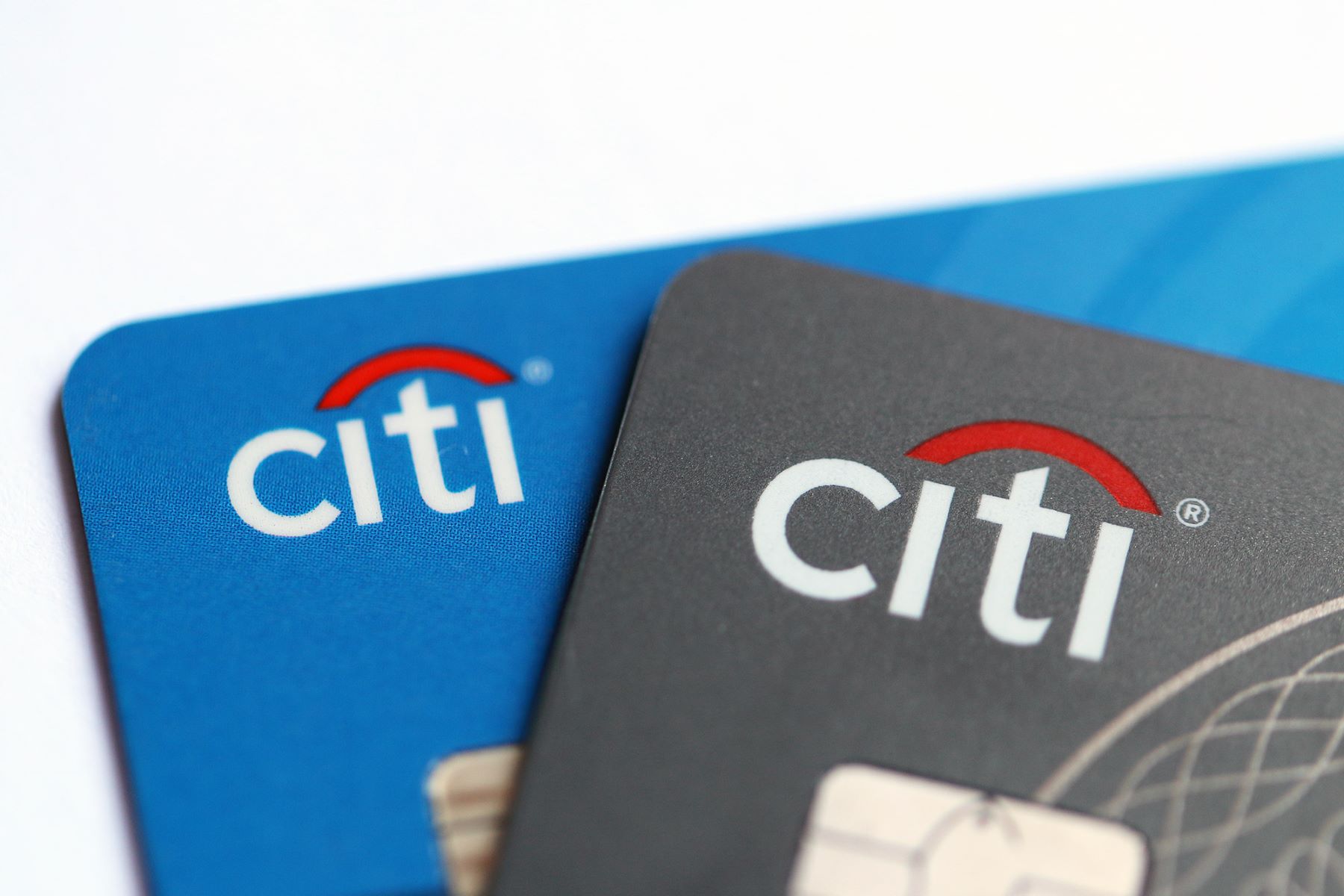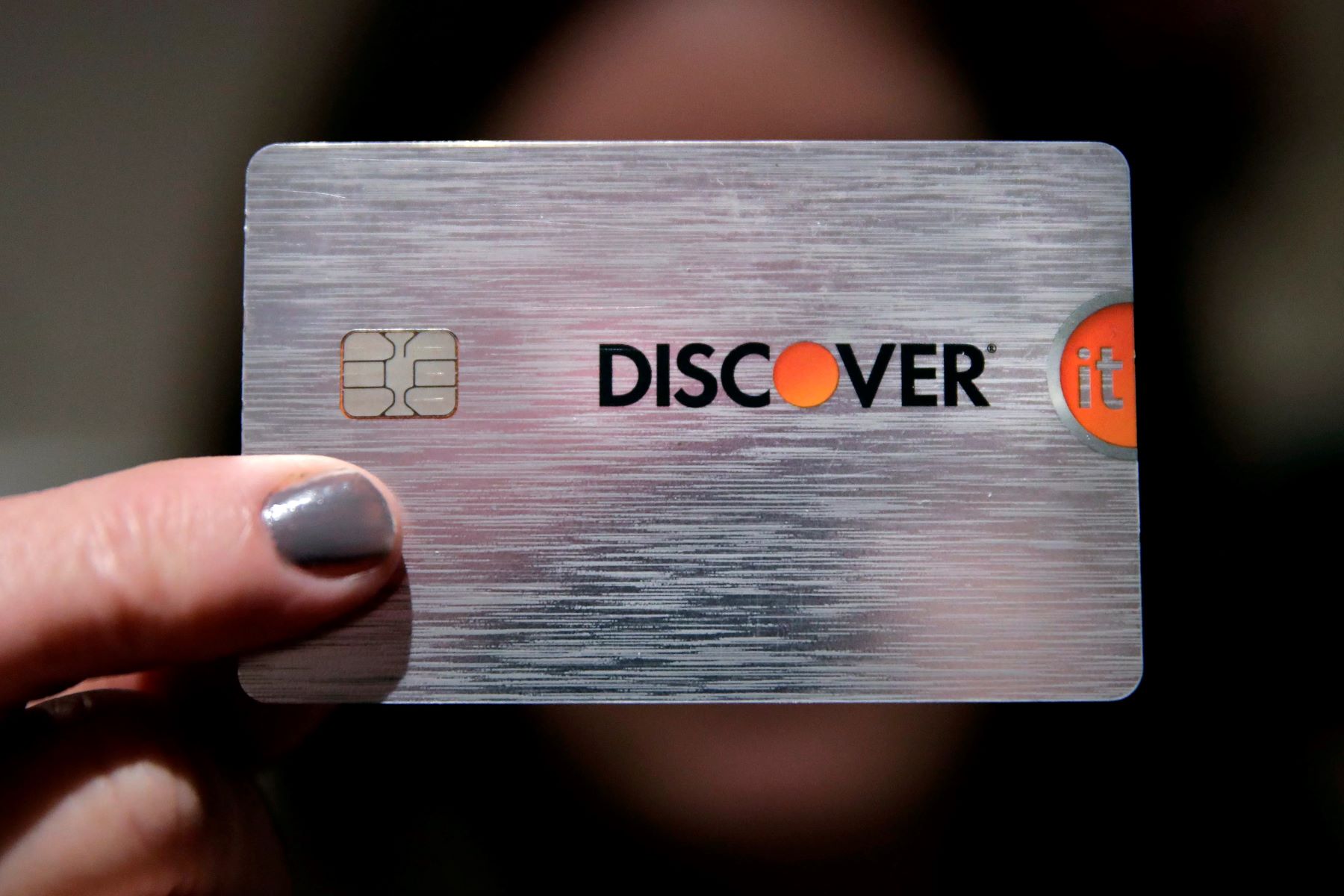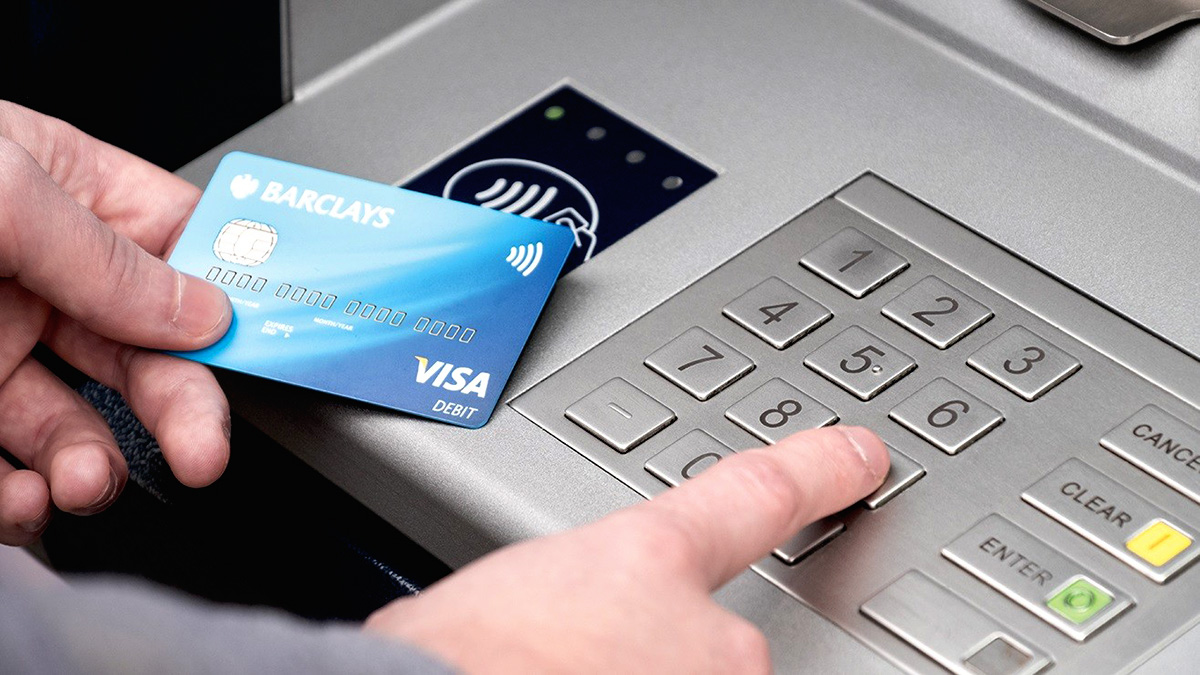

Finance
How Can I Reopen A Closed Credit Card
Published: October 25, 2023
Learn how to reopen a closed credit card and manage your finances effectively with expert tips and advice. Take control of your financial future today.
(Many of the links in this article redirect to a specific reviewed product. Your purchase of these products through affiliate links helps to generate commission for LiveWell, at no extra cost. Learn more)
Table of Contents
Introduction
Opening a credit card account can be a tempting financial decision. It offers convenience, flexibility, and the opportunity to build a positive credit history. However, there may come a time when you decide to close a credit card account, whether it’s to minimize financial obligations or due to dissatisfaction with the credit card company.
But what if you change your mind and want to reopen a closed credit card? Is it possible to reverse the decision and regain access to the credit line? The answer is, it depends.
In this article, we will explore the considerations and steps involved in reopening a closed credit card account. It is important to note that not all credit card companies allow reopening closed accounts, and even if they do, there may be certain conditions or limitations. Therefore, it is crucial to understand the impact of closing credit card accounts and assess the reasons for wanting to reopen them.
Before diving into the details, however, it is essential to highlight the importance of financial responsibility. Opening and managing credit card accounts should always be done with careful consideration, and maintaining a good credit score is crucial for financial well-being. Reopening a closed credit card should only be considered if it aligns with your financial goals and responsible credit card usage.
Understanding the Impact of Closing Credit Card Accounts
When you close a credit card account, it can have both short-term and long-term impacts on your financial situation. Understanding these effects is crucial before deciding to reopen a closed credit card account.
One immediate impact of closing a credit card account is the potential decrease in your available credit. This reduction in available credit can impact your credit utilization ratio, which is the amount of credit you are using compared to your total credit limit. High credit utilization ratios can negatively impact your credit score, so closing a credit card account without considering this ratio can potentially lower your credit score.
In addition to impacting your credit utilization ratio, closing a credit card account can also affect your average account age. Credit scoring models take into consideration the length of your credit history, and closing an older credit card account can shorten the average age of your accounts. A shorter credit history may result in a lower credit score.
Another factor to consider is the impact on your credit mix, which refers to the variety of credit accounts you have, such as credit cards, loans, and mortgages. Closing a credit card account can reduce the diversity of your credit mix, potentially impacting your credit score. Creditors may view having a diverse credit mix more positively, as it demonstrates your ability to handle different types of credit responsibly.
Furthermore, consider any rewards or benefits associated with the closed credit card account. Some credit card companies offer cashback rewards, travel points, or other incentives for cardholders. Closing the account means forfeiting these benefits, which may be a significant loss depending on the value of the rewards.
Overall, understanding the potential impacts of closing a credit card account is essential for making an informed decision about reopening it. Before proceeding, it’s crucial to assess your current financial situation and determine whether reopening the closed credit card aligns with your long-term financial goals.
Assessing the Reasons for Reopening a Closed Credit Card
Before taking steps to reopen a closed credit card, it’s important to evaluate the reasons behind your decision. Reopening a credit card account should serve a specific purpose that aligns with your financial goals. Here are some common reasons why individuals may consider reopening a closed credit card:
- Improved Credit Score: If your credit score has improved since closing the credit card account, reopening it can help boost your credit utilization ratio and overall credit mix. An improved credit score can lead to better interest rates and increased access to credit in the future.
- Reinstating Rewards and Benefits: If the closed credit card account offered valuable rewards or benefits, reopening it can restore access to those perks. This is particularly relevant if the rewards outweigh the potential negative impacts on credit utilization and average account age.
- Preserving Credit History: If the closed credit card account had a long and positive payment history, reopening it can help maintain a strong credit history. This is especially important if you have limited credit history or if the closed account was one of your oldest accounts.
- Utilizing Credit Line: If the closed credit card account had a high credit limit, reopening it can provide additional available credit for emergencies or larger purchases. However, it is crucial to use the credit line responsibly to avoid accumulating excessive debt.
- Consolidating Debt: If you have outstanding debts on other credit cards or loans, reopening a closed credit card with a low interest rate can allow you to consolidate and manage your debts more effectively. This can lead to simplifying your repayment strategy and potentially saving on interest fees.
Identifying the specific reasons for reopening a closed credit card will help you determine if it is a prudent financial decision. Consider the potential impacts on your credit score, rewards and benefits, credit history, and overall financial goals before proceeding with the process.
Contacting the Credit Card Company
Once you have assessed your reasons for reopening a closed credit card and decided to move forward, the next step is to contact the credit card company. Most credit card companies have customer service departments that handle account-related inquiries and requests. Here are the steps to follow when reaching out to the credit card company:
- Gather relevant information: Before contacting the credit card company, gather all the necessary information regarding the closed credit card account. This includes the account number, the reason for closure, and any other pertinent details.
- Find the contact information: Locate the contact information for the credit card company’s customer service department. This can typically be found on their website or on the back of your credit card.
- Prepare your request: Clearly outline your request to reopen the closed credit card account. Be concise, yet specific, about your reasons for reopening and any relevant circumstances that support your request.
- Call or send a written request: You can choose to call the customer service department directly or send a written request via email or postal mail. Some credit card companies may have specific procedures or forms to be filled out for reopening closed accounts.
- Be persistent and patient: If your initial request is denied, you may need to be persistent. Consider escalating your request to a supervisor or manager who has the authority to review and approve account reopenings. Be patient and professional throughout the process.
When contacting the credit card company, it is important to maintain a respectful and courteous tone. Clearly explain your request, provide any necessary supporting documents, and highlight your commitment to responsible credit card usage. Remember that credit card companies have the discretion to approve or deny requests for reopening closed accounts, so it’s essential to make a compelling case for why your request should be considered.
Keep in mind that the success of reopening a closed credit card account will depend on the credit card company’s policies and your individual circumstances. It is important to be prepared for the possibility of your request being denied, and to have alternative strategies in place to achieve your financial goals.
Providing Information and Documentation
When reopening a closed credit card, it is crucial to provide the credit card company with the necessary information and documentation to support your request. This documentation will help strengthen your case and demonstrate your eligibility for reopening the account. Here are some essential pieces of information and documentation you may need to provide:
- Account details: Provide the credit card company with the account number and any other relevant details associated with the closed credit card account. This will help them locate and review your account information more efficiently.
- Reason for closure: Clearly explain why you previously closed the credit card account and why you now wish to reopen it. Be truthful and provide any supporting information that may help the credit card company understand your circumstances.
- Financial stability: Demonstrate your financial stability and ability to manage credit responsibly. This can be done by providing proof of income, such as recent pay stubs or tax returns, as well as evidence of other assets or investments that showcase your financial standing.
- Creditworthiness: Highlight your positive credit history, if applicable. Provide the credit card company with your credit reports from major credit bureaus, which can illustrate your responsible credit behavior and prompt payment history. If your credit score has improved since the closure, include this information as well.
- Justification for reopening: Clearly articulate why reopening the closed credit card account aligns with your financial goals. Discuss any benefits or rewards associated with the card and how it can contribute to your financial well-being.
When providing documentation, it is crucial to submit copies rather than original documents. Keep copies for your records and send the documents via certified mail or with delivery confirmation to ensure they are received by the credit card company.
Remember to be honest and transparent throughout the process and provide accurate and up-to-date information. Falsifying or withholding information can have serious consequences and may jeopardize your chances of successfully reopening the closed credit card account.
By providing the necessary information and documentation, you can strengthen your case and present a compelling argument as to why the credit card company should consider reopening your closed account.
Reviewing the Terms and Conditions
Before finalizing the reopening of a closed credit card account, it is essential to carefully review the terms and conditions set forth by the credit card company. Understanding the terms and conditions can help you make an informed decision and ensure that reopening the account aligns with your financial goals. Here are some key elements to consider:
- Interest rates: Determine the interest rate that will apply to the reopened credit card account. Compare it to current market rates and evaluate whether it is competitive or if there are better options available. Understanding the interest rate structure will help you assess the affordability of using the credit card.
- Annual fees: Check if there are any annual fees associated with the credit card. Consider whether the benefits and rewards outweigh the cost of the annual fee, if applicable.
- Rewards and benefits: Review the rewards and benefits offered by the credit card. Evaluate the value of these rewards and benefits in comparison to other credit cards available in the market. Ensure that the rewards and benefits align with your spending habits and financial needs.
- Grace period: Understand the grace period, which is the period of time you have to pay your balance in full without incurring interest charges. Familiarize yourself with the conditions and length of the grace period to avoid any unexpected interest charges.
- Penalties and fees: Take note of any penalties or fees that may be imposed for late payments, exceeding credit limits, or other violations of the terms and conditions. Understand the consequences and assess if you can comply with the requirements.
- Cardholder protection: Familiarize yourself with the liability protection offered by the credit card company. Review the policies regarding fraudulent transactions, disputed charges, and other instances where cardholder protection is applicable.
- Foreign transaction fees: If you frequently travel or make purchases in foreign currencies, consider the foreign transaction fees associated with the credit card. Compare these fees to other cards that offer better rates for international transactions.
By thoroughly reviewing the terms and conditions, you can make an informed decision about reopening the closed credit card account. If you have any questions or concerns about the terms and conditions, reach out to the credit card company’s customer service for clarification before proceeding.
Remember that credit card terms and conditions may change over time, so it’s important to stay updated on any revisions or updates to the terms that may affect your decision to keep the reopened credit card account.
Reactivating the Credit Card
After completing the necessary steps and receiving approval from the credit card company to reopen your closed credit card account, the next step is to reactivate the card. Here’s what you need to do:
- Confirm the reactivation process: Contact the credit card company to confirm the specific steps required to reactivate the card. They may provide you with instructions to follow or inform you of any additional documentation or verification needed.
- Update your contact information: If any of your contact information has changed since you closed the account, ensure that you update it with the credit card company. This includes your current mailing address, email address, and phone number.
- Activate the physical card: If you still have the physical credit card, you may need to activate it before you can use it again. This can usually be done by calling a designated activation phone number or by following the instructions provided by the credit card company.
- Set up online account access: If you had online access to your credit card account prior to closure, you may need to reactivate your online account as well. This involves creating a new username and password or reestablishing your previous login credentials.
- Review the account details: Once the credit card is reactivated, take the time to review the account details. Ensure that the credit limit, interest rate, and any associated fees or benefits are accurate and align with what was previously agreed upon.
- Update autopay and recurring payments: If you had any autopay or recurring payments set up with the card prior to closure, you may need to update those payment details with the new account information to ensure seamless payment processing.
- Destroy old cards: If you were issued new credit cards as part of the reactivation process, be sure to securely discard any old cards associated with the closed credit card account. Cut them into small pieces or use a shredder to prevent misuse.
Once you have completed the reactivation process, make a note of the reopened account details, including the new account number and the updated terms and conditions. This will help you stay organized and informed about the specifics of the reactivated credit card account.
Remember to use the reactivated credit card responsibly, keeping your spending in check, paying your bills on time, and regularly monitoring your credit card statements for any suspicious activity. Responsible credit card usage will help you maintain a positive credit history and improve your overall financial well-being.
Rebuilding Credit History
Reopening a closed credit card account provides an opportunity to rebuild and improve your credit history. Here are some strategies to consider when it comes to rebuilding your credit:
- Make timely payments: Pay your credit card bills on time each month. Late payments can have a negative impact on your credit score. Set up reminders or automatic payments to ensure you don’t miss any due dates.
- Pay off balances: Aim to pay off your credit card balances in full every month to avoid accruing interest charges. By keeping your credit utilization low, you demonstrate responsible credit management and positively impact your credit score.
- Monitor your credit utilization: Keep your credit utilization ratio below 30%. Ideally, aim for a utilization rate of 10% or lower. This shows lenders that you are effectively managing your available credit.
- Use the card regularly: Make small, regular purchases with your reopened credit card and pay off the balance in full each month. This helps demonstrate consistent and responsible credit card usage.
- Review your credit reports: Regularly check your credit reports from the major credit bureaus to ensure they are accurate and up to date. Report any errors or discrepancies to the credit bureaus to have them corrected promptly.
- Build a mix of credit: In addition to the reopened credit card, consider diversifying your credit mix by having other types of credit accounts, such as a mortgage or an installment loan. This shows lenders that you can handle different types of credit responsibly.
- Minimize new credit applications: Limit the number of new credit applications you make. Multiple credit inquiries can have a negative impact on your credit score. Only apply for credit when necessary and after careful consideration.
- Maintain a long credit history: Keep the reopened credit card account active over time to lengthen your credit history. Avoid closing the account if possible, as an older account can positively impact your credit score.
- Use credit wisely: Be mindful of your overall financial health and make wise decisions when using credit. Avoid overspending and carrying high levels of debt, as these can negatively impact your credit score.
Rebuilding credit takes time and patience. Consistently following these strategies can help you improve your creditworthiness and overall financial stability. Remember that rebuilding credit is a marathon, not a sprint, so stay dedicated to responsible credit management and monitor your progress over time.
It’s important to mention that seeking guidance from a reputable credit counseling agency or financial advisor can provide valuable insights and personalized advice based on your specific financial situation. They can help you develop a customized plan to rebuild your credit and attain your financial goals.
Conclusion
Reopening a closed credit card account is a decision that should be approached with careful consideration and a clear understanding of the potential implications. It is crucial to assess the reasons for reopening the account and evaluate how it aligns with your financial goals.
Before proceeding, it is important to contact the credit card company and provide the necessary information and documentation to support your request. Be prepared for the possibility of your request being denied and have alternative strategies in place to achieve your financial objectives.
Reviewing the terms and conditions of the credit card is essential to ensure that the reactivated account meets your needs and expectations. Familiarize yourself with the interest rates, fees, rewards, and benefits associated with the card to make an informed decision.
Once the credit card is reopened, it is crucial to use it responsibly and demonstrate good credit habits. Make timely payments, keep your credit utilization low, and monitor your credit reports regularly for accuracy. By rebuilding your credit history over time, you can improve your credit score and position yourself for future financial success.
Remember that credit decisions should always be made in the context of your overall financial well-being. Consider seeking guidance from a credit counseling agency or financial advisor to develop a comprehensive plan that aligns with your individual circumstances and goals.
Reopening a closed credit card account can be a valuable tool for rebuilding credit and strengthening your financial foundation. With careful consideration, responsible credit usage, and a focus on long-term financial stability, you can make the most of this opportunity and pave the way for a brighter financial future.














